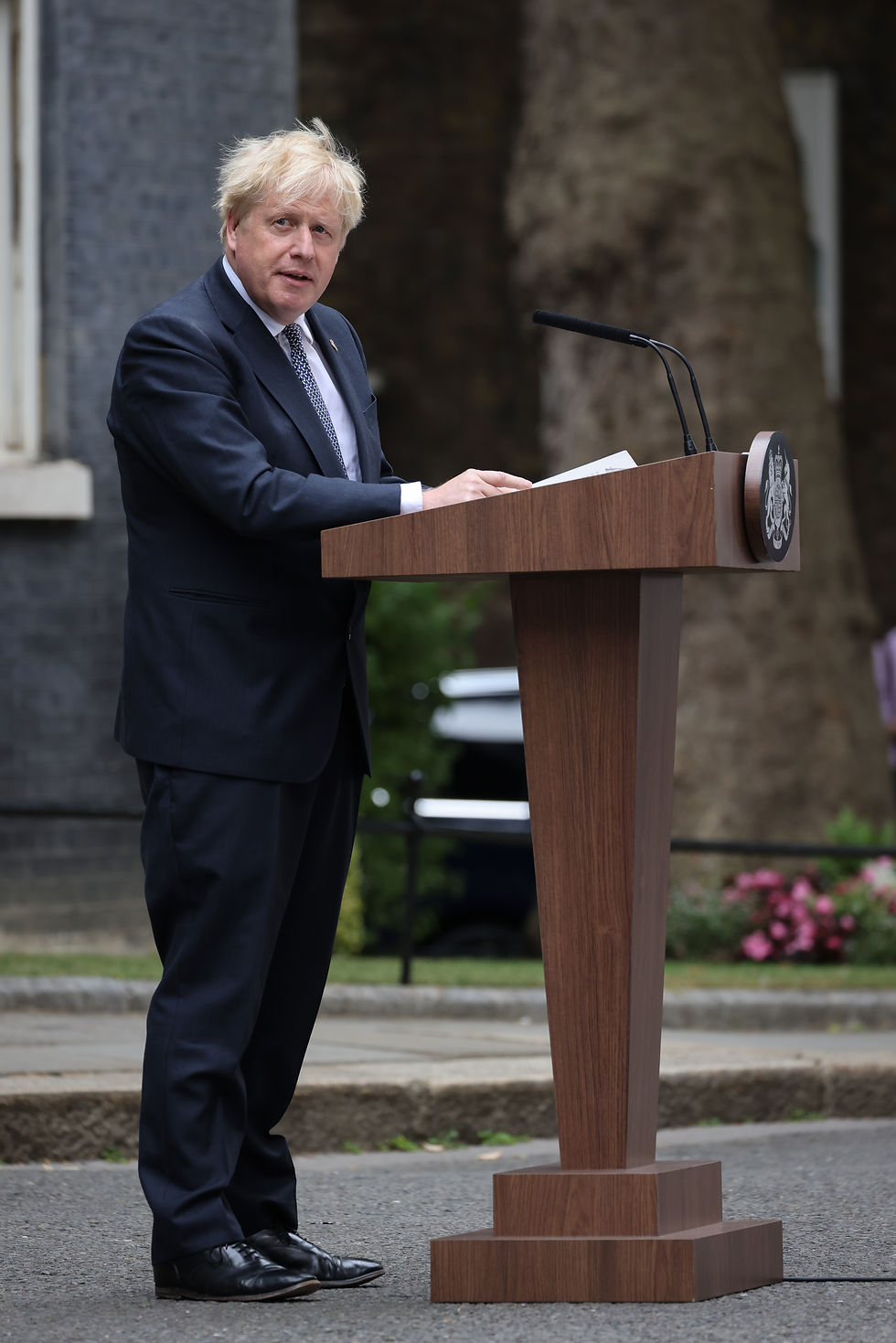Boris Johnson’s legacy – is ‘Johnsonism’ here to stay?
- Ravi Maini
- Sep 30, 2022
- 3 min read
As featured in Edition 41, available here.
By Ravi Maini (2nd year - Politics and International Studies and French - Leicester, United Kingdom)

Since Boris Johnson stood at that infamous podium outside Downing Street to announce his resignation, you would be forgiven for thinking that the British media have pretty much forgotten about him. Updates on Johnson’s lame duck premiership have been unusually sparse, with the majority of attention now focused, at the time of writing, on former Chancellor Rishi Sunak and Foreign Secretary Liz Truss in the Conservative leadership race. But while attention moves to the new, incoming Prime Minister, it is worth asking what Johnson has achieved - and what he has left behind.
Insofar as the uniquely outlandish degradation of moral and political standards can be given a name, Johnsonism is it. A governing style in which scandal and sleaze are deemed to be trivial, if not novel, occurrences. Public acceptance of the PM’s mismanagement is all about relativity, and we can reasonably bet that Johnson himself was very aware of it. The bigger the scandal and the more there were, the more Johnson’s other mistakes appeared as minor gaffes in comparison. For instance, Johnson’s supposed suggestion during the pandemic to ‘let the bodies pile high’ barely sank in before we were bombarded by another set of scandals. In Johnson’s world, perhaps scandal is thrilling, an unsettlingly fantastical game of Tory Jenga. How many bricks can you pull away before it all falls down? How many rolls of Johnson’s golden wallpaper does it take to break the camel’s back? Whilst the jaws of sleaze engulfed the PM, Number 10 revelled in a toxic mix of mismanagement and scandal.
There will likely be no shortage of political biographers keen to grapple with the thorny subject of Johnson’s legacy, especially on Brexit. In his defence, he was initially laser-focused on this, pushing a deal through a previously paralysed Parliament. Yet beyond taking the first step, the emerging difficulties prove the ‘oven-ready deal’ was, is, and will continue to be underwhelming. The Brexit deal negotiated with the EU is harming industries from farmers to musicians, and causing issues in Northern Ireland. For much of British industry, Johnson’s Brexit will probably not be remembered in a positive light. His government itself agreed to a separate trading protocol for Northern Ireland, only to then denounce it as unworkable and flawed soon after.
The chaos of a hasty EU withdrawal was followed by Covid contracts going to Conservative donors, with £37 billion being spent on largely ineffective NHS covid test and trace systems. Whilst Johnson did oversee an impressively-fast vaccine rollout, the billions lost by the Treasury to rampant fraud in the furlough scheme, and their subsequent reluctance to try and recover it, paints his government as being irresponsible with taxpayer money. With the government also voting to not extend free school meals to the most disadvantaged children during school holidays, Johnson’s conservatism will be remembered as both the hand that gives (peerages to Conservative party donors, for instance) and the hand that snatches away.
This all raises a crucial question: does being unpredictable, defensive, and even boisterous in the face of scandal afford Johnson a unique place in British political history? After all, he will certainly be remembered for it. Unique maybe, yes; but not for the right reasons. In a parliamentary system of governance, being accused of deliberately misleading parliament should theoretically be enough to remove even the proudest PM from office. Except for Johnson. Drowning in a toxic sea of scandal, Johnson’s lifebuoy was to tear up the norms and conventions integral to public and parliamentary trust in the executive. At the same time, shameful yet regular U-turns on issues such as banning LGBT conversion therapy showed how, for the former PM, indecision and culture wars took precedence over people’s lives.
What now for Johnson? A quiet return to the Tory backbenches like his predecessor, Theresa May? Only time will tell. Will Johnsonism outlast Johnson’s premiership? Truss and Sunak both worked in his Cabinet. Could one of them, or indeed both, be Johnsonites in the making, willing to turn a blind eye to persistent violations of the ministerial code? Johnsonism might live on stronger before the next general election. Equally, it may hobble through the next two years, condemned to the cobwebbed fringes of British politics where truth and accountability remain expendable. For the sake of their party, and indeed for Britain’s place in the world, the new PM must perform one final U-turn: a move away from the precarious path of Johnsonism.
Image: Flickr/ Number 10
Comments